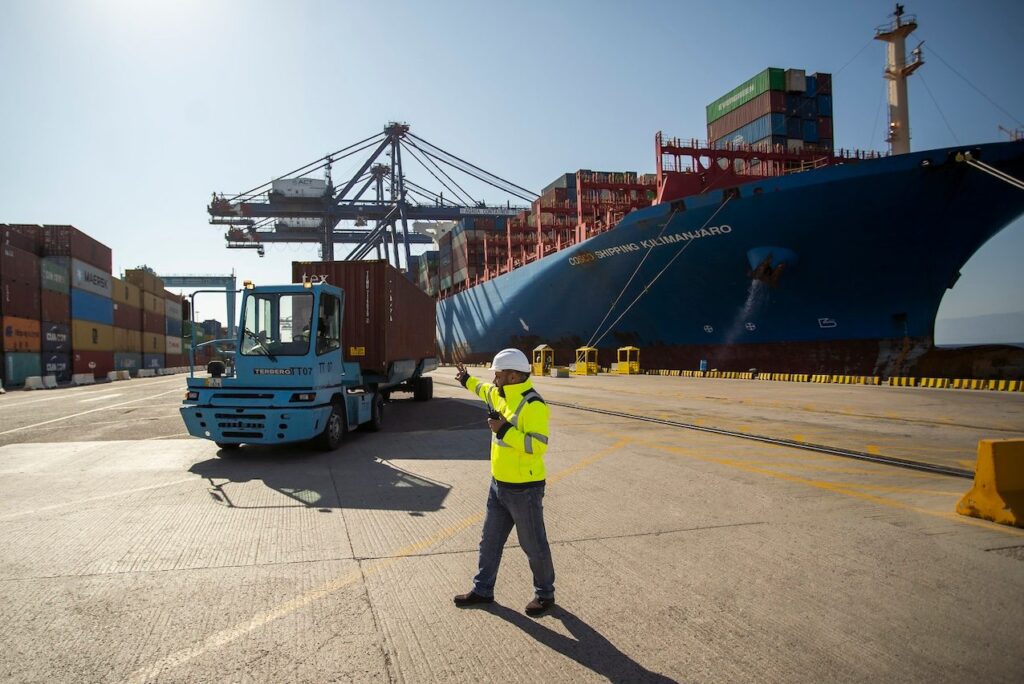Trump wrecks ‘spirit’ of FTAs
Jordan, Bahrain and Oman affected
Questions about US credibility
US president Donald Trump’s global tariff policy has bulldozed through dozens of free-trade agreements, including a handful in the Middle East.
The impact on the rules of international commerce could be severe, according to industry watchers.
“To take such an abrupt and quick decision from one side, where you have more than 20 years of stable framework for trade relations between Jordan and the US, this is unusual for sure,” says Ibrahim Saif, a former Jordanian government minister and currently senior fellow at the Amman-based think tank Jordan Strategy Forum.
Jordan is one of five countries in the Middle East and North Africa – along with Bahrain, Oman, Morocco and Israel – which maintained bilateral arrangements that, by and large, allowed for tariff-free trade with the US.
Jordan, Bahrain and Oman also keep their currencies pegged to the dollar, and cannot credibly be accused of manipulating their foreign exchange rates. Morocco ties its dirham to a basket comprising euros and dollars on a 60-40 ratio.
Yet, they all came in the crosshairs of the new US tariffs.
According to US-based Justin Alexander, director of Khalij Economics, Trump’s far-reaching wielding of this tool to redress what he perceives as “unfair” trade imbalances is “wrecking the spirit” of the FTAs and doing “long-term damage” to US credibility vis-a-vis competitors like China.
It is true, Alexander notes, that these frameworks typically allow for national security exemptions, so much so that when Trump imposed tariffs on metals during his first term, they were largely accepted in that context.
“The idea that these far more expansive tariffs can also be justified on national security/emergency grounds is pretty implausible and will be tested in the US courts and might be grounds for international commercial arbitration if anyone dared,” he adds.
The Jordan-US FTA went into effect in 2001, with duties eliminated in 2010. It covered $5.4 billion in bilateral trade last year. The agreements between Bahrain and the US, and Morocco and the US, kicked in in 2006, while the Oman-US deal entered into force in 2009.
Egypt does not have a free trade deal with the US, but has qualified industrial zones from which certain goods can be exported without tariffs.
Trump’s decision to overlook these agreements and impose a 10 percent universal tariff on all trading partners – plus additional levies on individual countries based on the size of their trade surplus – also flies in the face of the World Trade Organisation and its 30-year mandate to regulate international commerce, according to Saif.
“All these basic, simple rules have been tarnished by this unilateral decision that was taken by the US,” says Saif.
While the Trump trade policy remains in flux, Bahrain, Oman and Morocco have so far escaped with the minimum 10 percent tariff, which came into effect on April 5. Israel and Jordan received worse deals with 17 percent and 20 percent “reciprocal” levies respectively. Those are slated to come into force on April 9.
“The US’ willingness to impose tariffs even on countries with FTAs could make other trading partners more cautious of trusting them [the US],” says Rachel Ziemba of New York advisory Ziemba Insights.
Countries in the region are not expected to retaliate, but will try to negotiate carve-outs. The White House said on Monday that more than 50 nations have already reached out.
“The problem with negotiations is that countries who have FTAs and already place few if any barriers on US trade don’t really have much to offer in a deal, unlike say China,” says Alexander.
Register now: It’s easy and free
AGBI registered members can access even more of our unique analysis and perspective on business and economics in the Middle East.
Why sign uP
Exclusive weekly email from our editor-in-chief
Personalised weekly emails for your preferred industry sectors
Read and download our insight packed white papers
Access to our mobile app
Prioritised access to live events
Already registered? Sign in
I’ll register later



